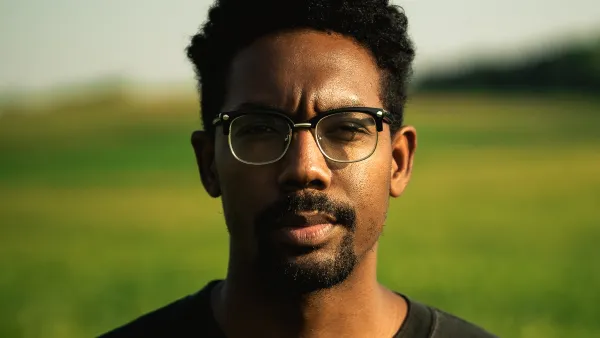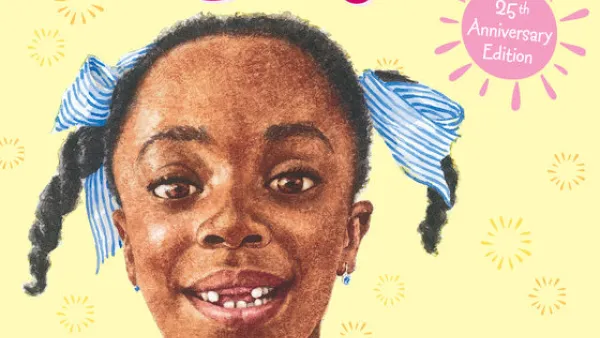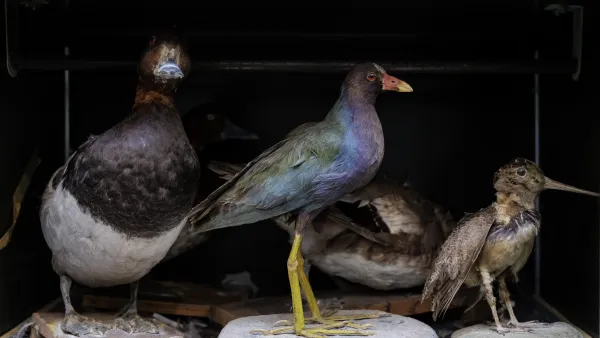Interview with Shanti Parikh, Chair of African and African-American Studies and Professor of Sociocultural Anthropology and of African and African American Studies
The year 2023 began with a series of news reports that the College Board — the nonprofit education testing organization responsible for creating Advanced Placement (AP) courses and the SAT exam — was engaged in a back-and-forth with the state of Florida over its newest offering, AP African American Studies, that eventually led to a pared-back curriculum. While the state continues its battle against race-conscious teaching (now expanded to include elementary-level history textbooks), we asked Shanti Parikh, chair of the Department of African and African-American Studies and professor of sociocultural anthropology and of African and African American studies, and who helped develop the AP curriculum, for a rundown of the process of developing the course, the controversy over the College Board’s dealings with Florida and what’s next for Black studies in the U.S.
[Update, 4/24/2023: The College Board announced that it would again revise its AP African American Studies course, promising an “unflinching encounter with the facts and evidence of African American history and culture.”]

What was your involvement in the AP African American Studies curriculum design?
The College Board has a good process for developing AP courses. For AP African American Studies, it took about two and a half years for six stages of development. They start with an exploratory phase to gauge if enough high school districts and universities would be interested. After they get the green light, they start the research phase. I got involved in the third stage, when they talk to a lot of faculty from different universities. In these robust focus group discussions, they asked us what topics would be necessary for an AP course in African American studies. It was a fascinating process in and of itself, because the field is so diverse, so expansive.
Then, they created a course framework. They invited 200-300 faculty members to D.C. to go through it and to determine which topics were definitely necessary, which ones were “yes, if it fits,” which ones they should condense or put with something else, and which ones they could trim away. I participated in that and in some of the conversations about getting it rolled out and accepted as AP credit at universities. Along the way, I also joined the College Board’s AP in Higher Education Advisory Committee. On that committee, we focus on all of the policies about AP courses and higher education.
When you all were going through this process, was there any discussion about potential pushback?
Many Black studies faculty members and I imagined that there would be pushback. I think it was naive on the part of College Board not to anticipate that there would be controversy, or that they would really have to stand their ground when it came to certain topics.
College Board is a nonprofit, but they operate like a business. They don’t take up a course unless it can generate income, because creating one is very expensive: Making the exam, training the teachers, and grading the exams is expensive.
They told us that about 10 years ago they first considered creating this course, but they didn’t think the time was right. By the time 2020 came around, I think they felt like the culture in America and the acceptance of African American studies had shifted enough to take it up.
I think they weren’t willing to accept that there is a conservative strand in America that could look at something that the College Board produced and say, “this is too much.” I think we — the 300 Black studies faculty members at the D.C. meeting — tried to say that when we were asking really tough questions. At the same time, many of us in the room were invested in making sure that there was an AP African American Studies.
There are people in Black studies and in other disciplines who are suspicious of the College Board’s motives in general. After many colleges and universities stopped requiring the SAT or ACT, they stopped making money on those exams. Some people are skeptical that are they now pivoting to African American studies — and other kinds of niche courses — as new revenue streams.
Additionally, some faculty members, not just within Black studies, are skeptical of AP exams because they exacerbate inequalities. The schools that can afford it are the wealthier schools; the kids who can afford to take the exam are the wealthier ones. So, there are a whole bunch of people who were already not pleased that College Board was taking it up. It was controversial from the beginning.
What is your understanding of why the College Board revised the curriculum? How did the state of Florida become involved?
I think the more the media digs into the timeline, the more we realize that Florida had a bigger influence than the College Board first admitted, a bigger role than many of us. I think we took College Board at face value when they said that the sections on intersectionality, Black feminism, Black Lives Matter and queer theory were taken out before [Florida governor Ron] DeSantis made his statements, only later to find out that, indeed, College Board was in conversation with Florida. They should have known that DeSantis was on this anti-woke campaign as a political gesture, trying to package himself as a certain type of Republican.
From a business perspective, it makes sense that they go to the biggest players [in state-level education] to make sure they would buy their product. They have to talk to the Department of Education and say, “Is this a curriculum that your state will adopt?” If states don’t adopt it, if universities don’t accept it, then it’s a bad product. [But, when talking to us,] they left that out.
It’s common that they revise course frameworks. But the version that was announced in February was not the version our faculty voted on, which was 300 pages and had Black Lives Matter and all of the other topics in it — it went all the way back to the cradle of mankind in East Africa. I don’t know if we would have noticed the changes if DeSantis hadn’t called them out. That’s when people started to look more closely at it. And, indeed, there were changes.
I think that’s where the College Board got their messaging wrong. I think they believe in the course framework; they believe in AP African American Studies. I think they really did think the topics they took out could be covered as optional research paper topics. And maybe they were going to help equip teachers by putting in some modules to cover them in their online portal for teachers. But they should have been more transparent. The lack of transparency is, I think, what really chipped away at people’s confidence in them.
Why do you think the state of Florida and perhaps others are so against this curriculum? What do you think about the idea that some people label African American studies as “controversial”?
In some ways, it emerged out of the context of anti-Blackness in the United States. As a discipline, Black studies emerged out of resistance. It emerged with the takeover Brookings Hall. It emerged with Black students demanding that there needs to be a bigger emphasis in the curriculum on Black people, Black people’s lives, Black people’s experiences, Black people’s accomplishments, there needs to be more Black faculty, there needs to be more offerings for Black students and more Black students.
It emerged out of the fight for getting the curriculum of Black people and Black subjects to cover not just the oppression, but their joy and creativity. And the fact that “making it the norm” became controversial is the state of Black studies.
So, the fact that Florida thinks it’s controversial is not surprising. In some ways, the College Board and other large dominant entities just need to push back. In the same sense that Reconstruction appeased the Southern states by building Confederate monuments up North — most of the Confederate monuments were built after the Civil War — why do we keep trying to appease people who don’t want to move the country forward? We need to be bold and say, “We’re moving forward, and feminist studies is there, the lives of Black people are there, and we’re going to teach it and it hurts.” It might make white people feel uncomfortable, but certainly it makes Black people also feel very uncomfortable with the history.
The high school teachers are interested in better incorporating aspects of Black studies into pre-existing, mainstream curriculum. They have the sense that young people are really interested these topics and that they’re ready. We have to trust them.
Specifically, what actions could College Board take at this time?
They need to move forward with developing some of the modules around the topics prioritized by the faculty members they called together to design this course framework. If enough faculty thought it was important to include the Black Lives Matter movement, intersectionality, Black feminism — if enough faculty who are “experts” in the field think that those topics are key to Black studies — then they need to find a way to put them in there.
After looking at the course framework, I agree there is a lot of material. Fortunately, College Board is in the practice of developing modules, so that teachers who aren’t experts in Black Lives Matter can go to the website and download the lesson plan. And if states decide they don’t want that, then at least students can go online and find that course material.
The high school teachers are interested in better incorporating aspects of Black studies into pre-existing, mainstream curriculum. They’re interested in decolonizing how and what they teach. They want to know how to teach about slavery, about African American soldiers in World War II, about the GI Bill. The excitement from teachers on the front line is promising. They have the sense that young people are really interested these topics and that they’re ready. We have to trust them.
What impact was the course intended to have for high school students? What affect will the paring down of the curriculum have on them?
One exciting thing about the AP African American Studies course — despite all the criticism of College Board and AP and issues with accessibility — is that students will be exposed to the field. We still get students — Black, white and Asian — who come to college and take their first class in our department, which focuses on the Black experience, and they say, “Wow, this is the first I’m learning about Black Wall Street or the East St. Louis race massacre or Islamic inventions.” So, I think that having this course available is exciting because students will be aware of the field and they’ll be aware that you can focus on African American literature or African American history, for example.
At the same time, I think it’s unfortunate that they won’t learn certain topics in school, so they won’t really have a robust analysis of, say, Black Lives Matter or of intersectionality. It’s a missed opportunity. But I think the people who are going to take the course are the type who are curious enough that they will be able to branch out, and that teachers who teach it will be able to find a way to put those topics in there.
Our young people are really bright; they are going to find it elsewhere. They’re going to see queer theory on TikTok; it just won’t be called “queer theory.” They’re going to see social movements on social media or Hulu or Netflix or whatever young people are watching.
The fact that it’s a threat that people would learn about it early is the telling part. The myth of white America is so fragile that they’re afraid it’s going to crumble if they learn about, for example, intersectionality or slavery.
The fact that it’s a threat that people would learn about [Black studies] early is the telling part. The myth of white America is so fragile that they’re afraid it’s going to crumble if they learn about ... intersectionality or slavery.
What are the students in your department saying about the fiasco?
I think to them, it’s within this larger landscape of banning books, of banning gender-neutral bathrooms, of banning transgender sex-reassignment surgery. To them, it is a backlash against moving forward and progress. It’s the politics of fear. For many of them, that’s scary. But, at the same time, it’s really out of touch with young people, with what young people are thinking, what they’re aspiring to, the future world that they’re going to be living in. And I think that's what our students see. They see themselves moving forward, the world moving forward, and DeSantis and his type are not.
How does this episode fit in with the history of Black studies?
I think this is a watershed moment. I think this is a moment where we are all being reminded of the urgency and necessity of our field and what we study.
There is this sort of liberal ambivalence that MLK, James Baldwin and Toni Morrison talked about — a willingness to concede certain things that are important to Black people, and in this case, the field of Black studies, in order to get something passed. I’ve heard some people from within the field, particularly people who are involved with College Board, who are saying, “We don’t want colleges to not accept it. Because then, we won’t have it at all.” This is a moment for us as Black studies scholars to say, “What are the things that are key to our field?”
Where do things go from here?
I think we need to keep the pressure on, to find a way to get those topics back in there. The College Board damaged their reputation when they weren’t forthright and transparent. They’ve since apologized for mishandling the rollout. Moving forward, I hope we can get things into the curriculum, students can take the course like any other AP course, and they can leave it up to the experts to determine what content is appropriate and how it’s tackled.
Hopefully, more people now know of the field of Black studies. The thing about controversy is, now people know that there is an AP course in African American studies and they now know that it’s a field. I feel like Carter G. Woodson, in some ways, thinking about his whole legacy of Black History Month and making Black history at the center of education and knowledge production. In some sense, he’s sort of laughing, saying, “Well, good, I'm glad, if this is a controversy, that it allowed for Black studies to be on the mind of people who hadn’t thought about it previously.” Maybe that’s a good that will come out of it.



